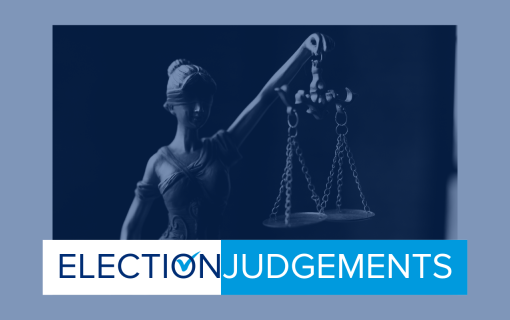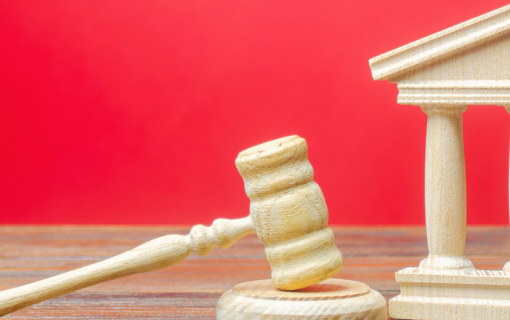Elections to Watch in 2015
Elections, as well as the issues and debates of electoral campaigns, provide insight into the responsiveness and resiliency of political systems and offer a convenient measure of the practice of democracy in a given country. This is true for countries with varying levels of experience with democracy, from those undergoing transition to those with long-established democratic practices. In this New Year, several countries will experience crossroads elections in which political and electoral systems are being tested and voters will be faced with clear choices. Tumult and turbulence – from the rising challenge of ISIS to the continued narco-violence in Latin America, from the Ebola pandemic to anemic economic conditions in many regions – form the backdrop for these critical contests at various socio-political crossroads.
Nigeria – February 14
General elections are scheduled for February 14 with recent setbacks in the battle against Boko Haram framing the contest for President as incumbent President Goodluck Jonathan seeks another term in office against former General Muhammadu Buhari. Buhari won a contested primary of the All Progressives Congress, a coalition of four opposition parties, and promises a return to peace and stability. Nigerians and Nigeria watchers are bracing for a violent electoral period. Legislative elections, long dominated by the People’s Democratic Party, will have thousands of candidates squaring off for some 1,500 seats at the national and state level in Africa’s largest democracy and the continent’s largest economy.
Israel – March 17
Early elections to the Knesset (Israel’s parliament) are set for March 17 following the collapse of the Likud-led governing coalition last December. Issues of peace and security, especially in light of last summer’s Israeli-Gaza war, loom large as always. The contentious “Jewish State” bill proposed by Prime Minister Benjamin Netanyahu last November also figures prominently in the campaign. The bill would officially define Israel as the nation-State of the Jewish people, leading many to contend that Israel is facing a foundational question: will the country continue to be a democratic, secular nation-State where all citizens are equal? Israel’s voters face stark choices about the country’s national identity in this snap election.
Egypt – March-April
Amid growing internal tension and regional unrest, Egyptians will head to the polls in March to elect a new parliament following last year’s election of former General Abdel Fattah al-Sisi as President. Egypt has been without a parliament since June 2012 when a court dissolved the body just prior to the ouster of President Mohamed Morsi. Egypt’s stagnant economy and internal security concerns following the alignment of Bayt al-Maqdis and ISIS form the backdrop for what could be a competitive process, yet restrictions put in place last year limiting protests and political demonstrations may mute calls for change. The recent release of former President Hosni Mubarak, and the ascendancy of many former military leaders, have led Egypt watchers to believe that al-Sisi loyalists stand to gain.
Turkey – June 15
The ruling Justice and Development party (AKP) looks to further solidify its control of the legislative branch in June parliamentary elections when Turkey elects all 550 seats of the National Grand Assembly. Since Recep Tayyip Erdogan’s election as the first directly-elected President in June 2014, Turkey’s political order has continued to shift away from the long established political parties, the Republican People’s Party (CHP) and the National Movement Party (MHP). Given the 10 percent threshold for representation in parliament, the ability of new political forces to attract enough support nationwide is questionable. Many expect this election to further cement Turkey’s embrace of sectarian politics and the AKP will likely maintain or increase its majority of 312 seats.
Mexico – July
Voters elect all members of the Chamber of Deputies of the 63rd Congress in legislative elections scheduled for July. These are the first elections since reform of the election law that resulted in the creation of the National Institute of Elections (INE), which replaces the Federal Election Institute (IFE) and enjoys expanded jurisdiction over both federal and local elections, including party primary elections. The cooperation between the INE and the local electoral authorities will be tested in an election that promises to be fiercely contested amid on-going social and economic challenges. Declining oil revenues and continued concerns regarding the state’s response to security and safety will be at the fore of voters’ minds. The July elections will be the most audited in Mexico’s history, with the INE charged with auditing over 75,000 political party finance reports.
Guatemala – September 13
Guatemala’s Constitution limits President Otto Perez to one term, setting the stage for presidential elections pitting the nominee of Perez’s Patriot Party against the presumed candidates of the United Party of Hope (Sandra Torres) and the LIDER Party (Manuel Baldizon). The former General’s term in office has seen slow progress on security, yet Guatemala’s economic recent growth has outpaced that of its Central American neighbors. Concurrent legislative and municipal elections will generate additional debate on domestic issues as voters elect some 500 officials on September 13. Both regional security and electoral violence during the campaign period will once again be a primary concern.
Argentina – October 25
Argentinians head to the polls on October 25 to elect a successor to the term-limited President Cristina Fernandez, putting at stake the survival and legacy of the Kirchner-Fernandez policies of the past 12 years. Argentina’s economic decline with a devaluing currency, inflation rates hovering above 10 percent and unemployment rate above 7 percent will be at the fore of the electoral debate, in what promises to be a close contest as reflected in current opinion polls. If no candidate receives more than 50 percent in the first round, a run-off will be conducted. This would mark the first time since 1994, when run-offs were introduced, that a second-round election was actually conducted, making this election one to watch.
Burma (Myanmar) – October/November (To be confirmed)
The continued political transition of Burma (Myanmar) will be put to the test in general elections that are expected in late 2015. Discussions around changes to the Constitution that reserve seats in the upper and lower houses of parliament, and that prohibit any candidate for President or Vice President to have parents, spouse or children with foreign citizenship, have dominated political debate over the past year. Burma’s indirect election for President puts increased emphasis on the composition of the new parliament. Current President Thein Sein is widely expected to step down following elections and the question remains whether the National League for Democracy’s Aung San Suu Kyi will be eligible, pending constitutional changes, to be elected the next President.
Côte d’Ivoire – October/November (To be confirmed)
Ivoirians go to the polls in October for the first presidential elections since the highly contested 2010 election in which both current President Alassane Ouattara and then-incumbent President Laurent Gbagbo claimed victory. The violent post-election unrest claimed the lives of more than 3,000 and resulted in the extradition of Gbagbo to the International Criminal Court. Reconciliation between the two major political forces has since largely proven elusive and the 2015 elections are regarded as hugely problematic for such a divided polity. The coming months will be critical if Côte d’Ivoire is to conduct an inclusive and transparent process that will be viewed as credible by all political actors. The outcome of an ongoing trial of 83 leaders and sympathizers of Gbagbo’s party could determine if the main opposition will participate in the election or boycott it all together.
Haiti – 2015 (To be confirmed)
The resignation of the Prime Minister Lauren Lamothe late last year hopefully paves the way for long-delayed legislative and local elections that will help overcome a political standoff between President Michel Martelly and the increasingly vocal and energized opposition. The President’s nominee to succeed Lamothe and the signature of a tripartite accord between President Martelly and the heads of the Senate and Chamber of Deputies, has predictably drawn opposition ire, while a political accord calling for the appointment of a new electoral council, a vote on the Electoral Law and the subsequent naming of a date for elections remains unfulfilled. The lack of a duly elected parliament after January 12 means that President Martelly will rule by decree in the absence of new elections. Rule by presidential decree, given Haiti’s turbulent democratic experience, puts the country on a precarious course. Haiti and her neighbors can only hope that a political compromise can soon be reached and new elections held without further delay.









